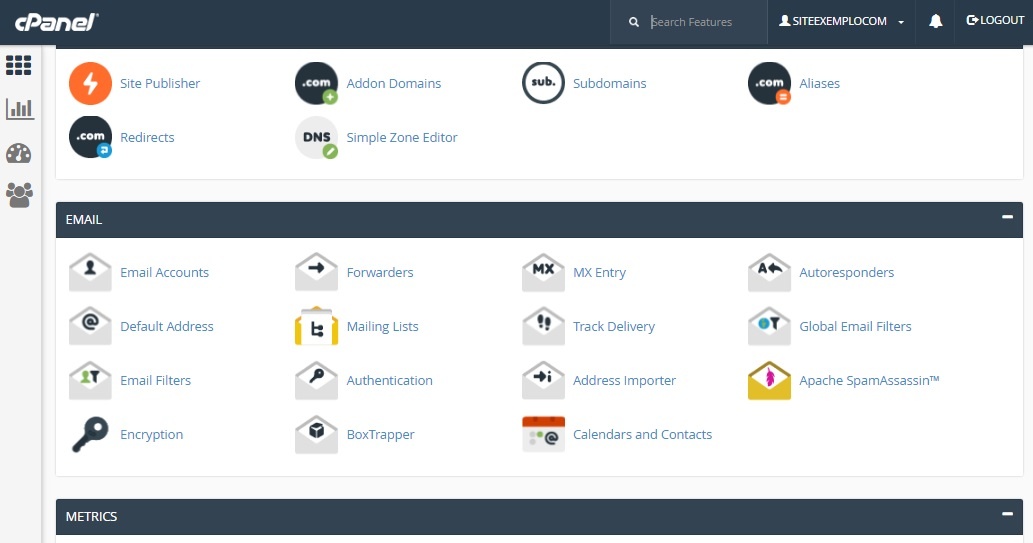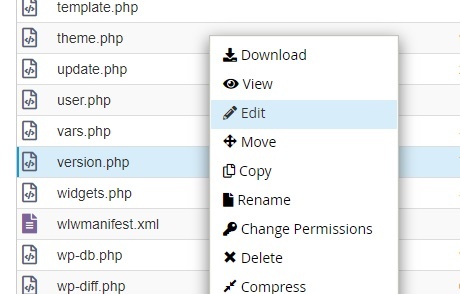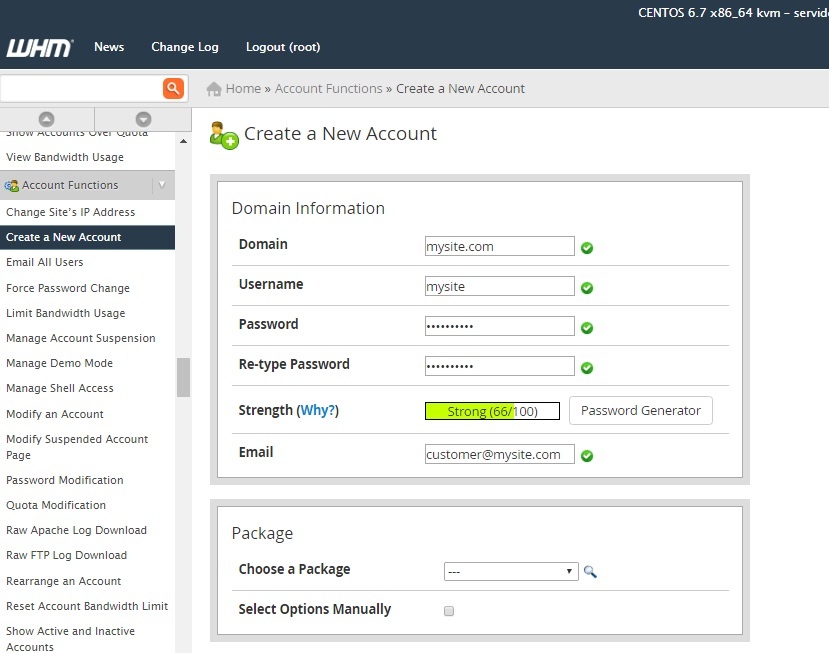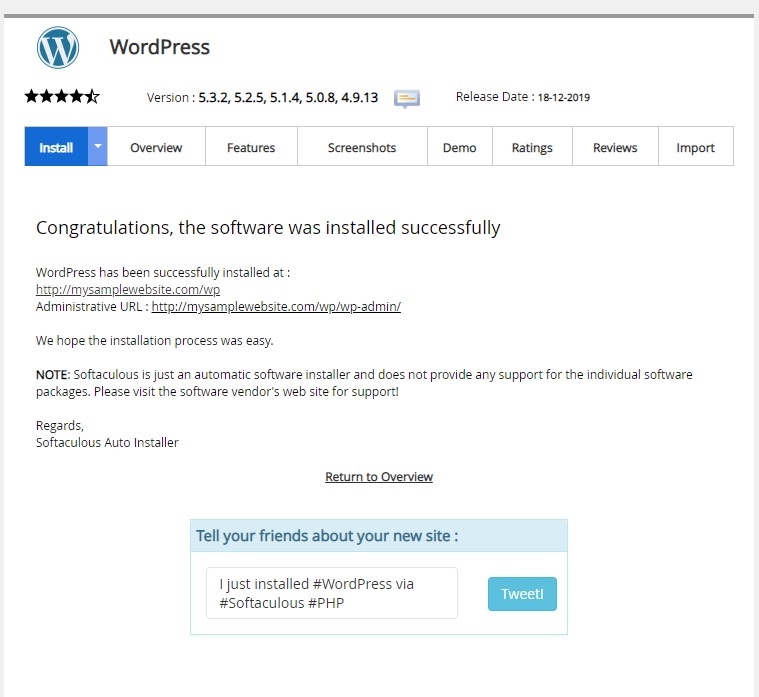Introduction to cPanel
What is cPanel? This question refers to a popular web-based control panel that acts as a central hub for managing web hosting accounts. It’s designed for both newcomers and seasoned users, streamlining various tasks associated with website management. Consequently, users can concentrate more on content creation instead of worrying about technical details. Given its extensive array of tools and features, cPanel has become an essential component of the web hosting ecosystem.
The role of cPanel in web hosting is tremendously significant. It provides a straightforward interface and a myriad of utilities that empower users to manage their websites effectively. From setting up new sites to managing email accounts and monitoring server performance, what is cPanel? It is a solution that centralizes these tasks for a smoother online presence.
Table of Contents
User-Friendly Interface
One of the distinguishing features of cPanel is its intuitive interface. After users log in, they are welcomed by a tidy dashboard where functions are neatly categorized. This design promotes easy navigation, making it simpler for a wide range of users to find the tools they need. The visual elements of cPanel, characterized by appealing icons and organized layouts, demystify the management of web hosting, allowing for greater engagement with the platform.
Usability is a pivotal focus in web hosting, especially for those lacking extensive technical skills. cPanel Hosting Companies can manage hosting accounts becomes hassle-free, enabling users to perform tasks like DNS management, file uploads, and database backups without requiring complicated coding or command-line expertise.

cPanel Domain Management
Effective domain management is a key feature of any hosting environment, and cPanel excels in this area. Users can swiftly create and configure domains, subdomains, and parked domains using a straightforward interface. The domain management tools offered by cPanel help in redirecting domains to different directories, allowing for easy hosting of multiple websites under a single account.
Additionally, cPanel includes tools for managing essential domain records, such as DNS settings, forwarders, and redirection features. This gives users comprehensive control over how their domains operate, ensuring optimal configurations for email forwarding and other significant domain functionalities.
File Management in cPanel
What is cPanel without its powerful file management features? A crucial component of cPanel is the File Manager, which enables users to upload, edit, and organize files directly on the server. Users can manage folders, set permissions, and modify file contents via a built-in code editor.
CPanel also offers users options for backup creation and FTP access. They can generate backups for their entire website or specific files, ensuring data security and recoverability in the event of problems. This organized approach to file management is vital for maintaining a well-structured and functional website as it grows.

Email Accounts
Another noteworthy feature of cPanel is its capability to manage email account creation linked with user domains. Users can easily establish multiple email accounts using their custom domain names, contributing to a more professional image in their communications. Furthermore, it contains robust management tools such as auto-responders and forwarders to facilitate efficient communication.
What is cPanel in terms of enhancing email security? The platform incorporates features like spam filters and encryption settings, essential in today’s digital landscape where threats like spam and phishing attempts are prevalent. By configuring these functionalities through cPanel, users can ensure a more secure and organized email management experience.
Database Management
Database management is another critical task performed by cPanel, particularly for dynamic websites powered by content management systems like WordPress or Joomla. Users can effortlessly create and manage MySQL databases within cPanel. The interface is user-friendly, designed to foster understanding of database structures without requiring extensive database experience.
With tools to manage users, set permissions, and create backups, cPanel maintains complete control over application data. This capability is crucial for developers and businesses seeking to uphold integrity and availability for seamless user experiences on their websites.

cPanel Software and Applications
CPanel also offers easy software installations via tools like Softaculous. This feature allows users to install a variety of applications—including WordPress, Joomla, and Drupal—with just a quick click. This installation capability is structured to cater to users of all skill levels, encouraging quick deployments and lowering barriers for the technically inexperienced.
The extensive library of one-click applications available through cPanel allows users to quickly enhance their websites with blogs, forums, and e-commerce platforms. This flexibility is crucial for both business growth and personal projects, facilitating rapid development and adaptation.
cPanel offers development packages for advanced users, like php-devel and python3-devel.
Security Features
Online security is critical, and cPanel includes various tools to safeguard websites from unauthorized access. Features like directory password protection, IP blocking, and SSL certificate management are seamlessly incorporated into the platform. This integration allows users to apply security measures without needing comprehensive technical know-how.
How does cPanel contribute to enhancing security? By employing its security features, users can significantly mitigate the risk of cyber threats threatening their websites. Ongoing updates and the ability to secure data transfers through SSL encryption heighten the overall trustworthiness of online operations, making cPanel a reliable choice for security-conscious individuals.
Backup Solutions
Regular backups hold immense importance, and cPanel simplifies this process to ensure data safety. Users can easily create full or partial backups, permitting quick restoration in the event of accidental loss or server failures. Moreover, backups can be scheduled and automated, alleviating the need for manual data management.
What is cPanel without dependable backup solutions? With its features, users can enjoy the reassurance that their website data is secure and easily recoverable, a vital aspect of effective website management, especially for enterprises that cannot afford downtime.
Metrics and Analytics
Monitoring website performance is essential, and cPanel comes equipped with built-in analytics tools that enable users to track traffic and server resource metrics. Features like bandwidth usage reports, visitor logs, and resource consumption data provide insights into site performance over time.
By processing this information, users can enact enhancements to boost visitor engagement and tackle performance-related issues. This analytical approach can empower informed decisions regarding website improvements, firmly establishing cPanel as a critical tool for those aiming to optimize their online strategies.
cPanel Resource Management
Resource management plays a vital role in maintaining a smoothly operating website. cPanel provides users with tools to monitor bandwidth, disk space, and other critical resources efficiently. This resource insight is essential for preventing disruptions and assuring efficient website operations.
Additionally, cPanel’s resource management features enable users to assess whether their hosting plan meets their website’s demands. By staying informed about their resource usage, users can proactively adjust their hosting plans or manage resources, ensuring optimal site performance.
One-Click Installations
One-click installations represent a fundamental cPanel feature, allowing users to launch various applications without the hassle of manual setups. This capability significantly reduces entry barriers for many users, empowering them to quickly create their websites or deploy applications with little effort.
This simplification of the installation process encourages broader participation in web development, nurturing creativity and innovation. CPanel cultivates an environment where users can prioritize content and functionality over the technical challenges often tied to building websites.

Customer Support Integration
Moreover, cPanel often integrates supportive resources, making it simpler for users to seek the help they need. With documentation, community forums, and support ticket systems, cPanel facilitates easy access to solutions for any encountered issues. This level of assistance is invaluable, especially for those who may need additional guidance.
The combination of these resources guarantees that users of any skill level can manage their hosting accounts effectively, while having access to vital assistance and information. Knowledgeable customer support further enhances the user experience, making cPanel not just an efficient tool but also one centered around the user’s needs.
Conclusion: what is cPanel
In summary, what is cPanel? It is a vital web hosting control panel that simplifies how users manage their websites across various skill levels. By featuring a user-friendly interface alongside an expansive set of tools—from domain management to comprehensive security features—cPanel equips users to operate their online presence successfully. Whether for personal or business websites, cPanel transforms the web hosting experience into a manageable endeavor, proving to be an essential resource for every developer and website administrator.
As web technologies continue to advance, cPanel remains at the forefront, constantly evolving to address user needs. A solid understanding of its functions can significantly improve how individuals and organizations navigate their online presence.
